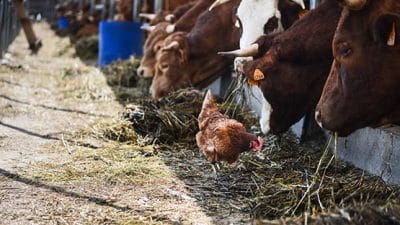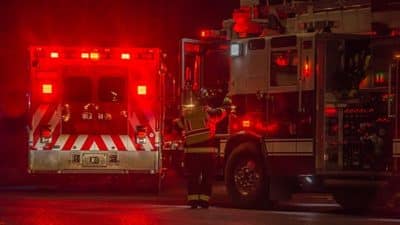
The 2013 economic benefit figures are slightly lower than the 2012 results which reported that visitors spent $902 million in local communities. “Over the years, the Blue Ridge Parkway has experienced fluctuations in visitation. Regardless of these fluctuations, Parkway staff remain committed to the mission of the National Park Service and work every day with the same goal in mind – to protect and preserve the rich natural and cultural resources along the Parkway, and provide meaningful visitor experiences,” said superintendent Mark Woods. “We also recognize the Parkway’s presence in the region provides many opportunities for surrounding communities as well, and we are happy to have so many communities in our region reporting strong tourism spending over all.”
Tourism officials across the Parkway region in North Carolina and Virginia explain that the rise in popularity of outdoor recreation activities helps keep their tourism numbers robust. “Watauga County in western North Carolina’s High Country saw a rise in occupancy tax revenue over last year,” said Wright Tilley, Executive Director of Boone & Watauga County Tourism Development Authorities. “We know our visitors are looking for hiking experiences while in our area and the Parkway is the most popular starting point for hiking in our area.”
Virginia tourism officials share similar feedback. “Outdoor recreation experiences on and off the Parkway are the mainstay of tourism in the Roanoke Valley, offered Landon Howard, President of the Roanoke Valley Convention & Visitors Bureau. “The Parkway provides a perfect backdrop to a variety of experiences, including several new special events in our area that celebrate the outdoors and provide new and creative economic opportunities for our community.” Parkway visitation to date for 2014 shows a five percent rise in visitation, and looking ahead to the fall tourism season, Parkway and local tourism officials are confident that the cooperative nature of the relationship between the park and adjacent communities will serve the region well.
The National Park Service’s peer-reviewed visitor spending analysis was conducted by U.S. Geological Survey economists Catherine Cullinane Thomas and Christopher Huber and Lynne Koontz for the National Park Service. The report shows $14.6 billion of direct spending by 273.6 million park visitors in communities within 60 miles of a national park. This spending supported more than 237,000 jobs nationally, with more than 197,000 jobs found in these gateway communities, and had a cumulative benefit to the U.S. economy of $26.5 billion.
According to the 2013 economic analysis, most visitor spending was for lodging (30.3 percent) followed by food and beverages (27.3 percent), gas and oil (12.1 percent), admissions and fees (10.3 percent) and souvenirs and other expenses (10 percent). The largest jobs categories supported by visitor spending were restaurants and bars (50,000 jobs) and lodging (38,000 jobs).
To download the report visit http://www.nature.nps.gov/socialscience/economics.cfm. The report includes information for visitor spending at individual parks and by state.
To learn more about national parks in North Carolina and Virginia and how the National Park Service works with communities across these states to help preserve local history, conserve the environment, and provide outdoor recreation, go to www.nps.gov/NorthCarolina or www.nps.gov/Virginia.










